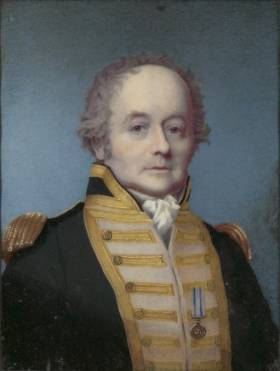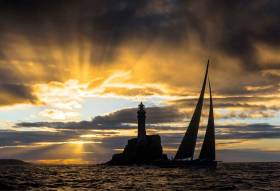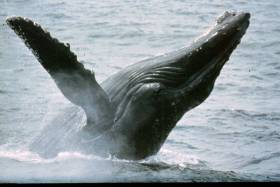Displaying items by tag: Friends of Glenua
Lecture: Dublin Bay - Captain Bligh and the Port
#Lectures - Friends of Glenua next week launch their 2018/19 winter lectures season, in aid of the RNLI, on Thursday 4 October at 8pm in the Poolbeg Yacht and Boat Club, Pigeon House Rd, Ringsend in Dublin.
Opening the season's first lecture (entry contribution of €5) will be: Dublin Bay - Captain Bligh and the Port.
The illustrated lecture is to be presented by Richard Nairn, the writer, sailor and environmentalist. He is the lead author of the acclaimed book: Dublin Bay – Nature and History, recently published. This talk is based on the book and will look at the career of Captain Bligh and how his work marked the start of the modern development of the port.
Captain William Bligh’s famous map of Dublin Bay was a key marine chart which accurately mapped the port and surrounds waters. It also identified the problems of the ‘bar’ and the need for engineering works to allow larger ships to enter the port.
Nairn was also a former director of BirdWatch Ireland. He currently provides environmental advice to the Dublin Port Company.
#Presentation - Friends of Glenua are to hold a presentation entitled: “From the Aegean to the Fastnet Race 2017-Trom agus Éadrom”
The presentation by Dermot Cronin will take place on Thursday 1 March (20:00) at the Poolbeg Yacht & Boat Club, Ringsend, Dublin 4. There will be an entry fee of €5 in aid of the RNLI.
The 2017 Rolex Fastnet Race attracted a record-sized fleet of 362 boats, six more than in 2015. The 605 mile continues to be the world’s largest offshore yacht race, defined by the rounding of the Fastnet Rock with its iconic lighthouse.
Dermot Cronin of Malahide Yacht Club, competed in the 2017 Rolex Fastnet Race in his yacht, Encore, a First 40.7. The preparations included the 2,500 mile passage of Encore from her winterage in Greece to Malahide, during which she encountered heavy weather both in the Mediterranean and in the Atlantic (the ‘Trom’ of the title).
In his illustrated lecture, Dermot will give a practical insight into the preparation and logistics required to get his boat to the starting line at Cowes followed by the competitive intensity experienced in a huge international fleet. The events of the Fastnet race itself which, although more benign in the weather (the Eadrom of the title), provided some close racing.
Dermot’s first sailing course was with Glenans in Bere Island in 1979. Being an active racing member of Malahide Yacht Club since 1989, he progressed to Round Ireland racing, D2D’s and Fastnet in 2003. He participated in the Middle Sea Race in 2013 and 2014 in his fully crewed Encore. He finally struck gold in 2015 with his son Paddy, winning the Double-handed division of the 2015 Middle Sea Race in Encore.
#Lecture - The Friends of Glenua first 2018 lecture entilted ‘Whales & Dolphins in Ireland’ Current Knowledge & New Discoveries is to be presented by Dr. Simon Berrow, next Thursday 11 January.
As usual the lecture programme is held in the Poolbeg Yacht & Boat Club, Ringsend, Dublin 4 with the talk beginning at 20.00. There will be an entry €5 in aid of the RNLI.
Dr Simon Berrow was a founder member of the Irish Whale and Dolphin Group and is currently their Head of Science. He is also a full time lecturer at the Galway-Mayo Institute of Technology, teaching on the Applied Freshwater and Marine Biology degree and runs the long-term Shannon Dolphin Study on Bottlenose dolphins in the Shannon Estuary.
Simon has worked on whales and dolphins since 1989, largely in Ireland, but is also involved in a humpback whale study in Cape Verde and spent 2.5 years on South Georgia with the British Antarctic Survey.
In his talk, Simon will introduce the rich community of whales, dolphins and porpoises in Ireland to the audience. He will share some the findings of new studies on whales and dolphins in Ireland from inshore to offshore waters, from coastal to deep-diving species. Also he will discuss what we need to find out in order to conserve these magnificent creatures.
































































